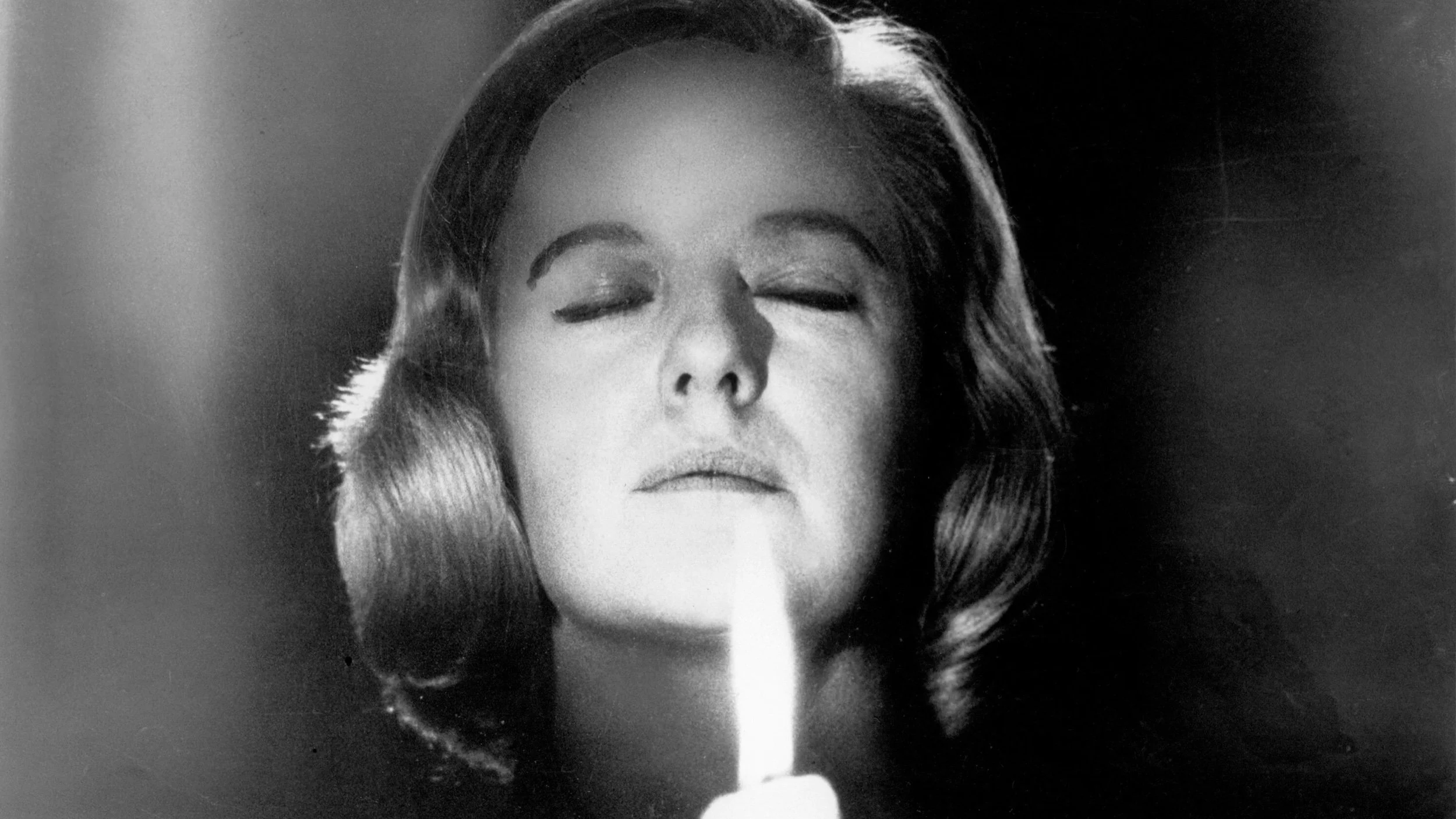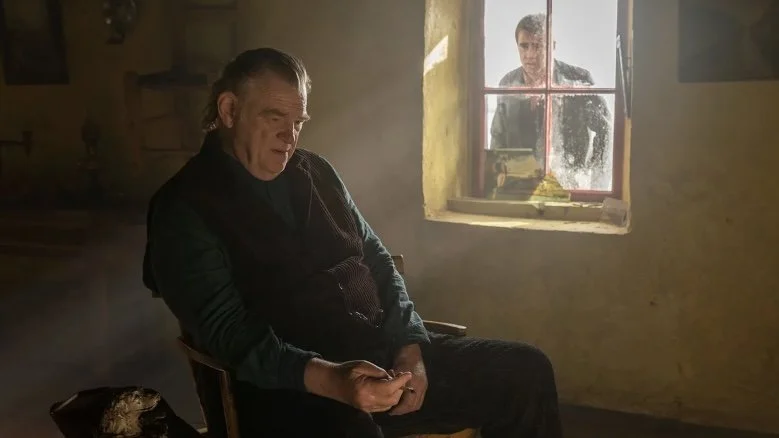Danse Macabre #8: Film Review — "Séance on a Wet Afternoon" (1964)
In 1981, Stephen King published Danse Macabre, a work of non-fiction wherein the author acts as a tour guide through the history of horror. He addresses the social issues and political conflicts that have influenced creators over the years, and the ways creators have influenced each other.
King closes out the volume by recommending 96 films and 113 books released during the 1950-1980 period that he feels have significantly contributed to modern genre fiction. With this Fearsome Queer column, I’ll be making my way through those titles in no particular order.
If you’ve perused this website’s Academy Queen section, you may have seen that Kim Stanley should’ve won the Oscar for Best Actress of 1964 for her wicked performance in Séance on a Wet Afternoon—not Julie Andrews for Mary Poppins. Yes, Andrews is remarkable as the eponymous nanny in the beloved Disney classic that has been adored for generations, but Stanley is downright sensational as the devious psychic Myra Savage in this severely under-seen British thriller. As notable as Séance is, I’m somewhat surprised that it made King’s list. Because when I think of Séance, I think specifically about the acting; I’ve never really thought of it as a groundbreaking work of genre filmmaking. But King seems to, so here we are. I wouldn’t even categorize it as horror, to be honest, but I guess there’s enough ghostliness to call it macabre.
To welcome us into our protagonists’ grief-stricken minds, director Bryan Forbes conjures a somber atmosphere of shadows and greys, while skewing his compositions ever so slightly every once in a while, in order to unsettle us. The tracking and panning shots that follow Myra around her space offer us a POV implying that we, too, might communicate with the dead at her table. What’s more, the scratchy texture of the transfer streaming on the Criterion Channel adds an incidental layer of disquiet, as if Myra and her subjugated husband Bill are trapped—trying to claw their way out of the mental states they’ve allowed their unchecked mournfulness to corrode. Bereavement has warped these two individuals, perhaps irreparably, into codependent dysfunctionality. Whether they ever operated “normally” as spouses is hard to say, but they certainly do not now. The Savages’ marriage is far from stable.
Bill Savage, played complexly by Richard Attenborough, has succumbed to more than just grief. Every moment of the day, his wife domineers and belittles him. She does so while claiming that she envies him, condescendingly. “You know what I sometimes wish?” she asks. “I sometimes wish I were ordinary. Like you. Dead ordinary.” Bill has a downtrodden beta-personality that Myra perceives as weakness. He placates her, yes, but I’m hesitant to label Bill as simply “weak.” At her command, he commits heinous deeds that a truly weak person never could, even under orders. Hell, the strongest and most determined among us would probably buckle under pressure if tasked with drugging and abducting the child of a wealthy family. Bill Savage is much tougher than most give him credit for. His character flaw, really, is his allegiance to his wife.
Myra is 100% aware of this unhealthy dedication of his and uses it to her advantage. I also suspect that deep down she’s cognizant of his aptitude, too. If she truly thought there was a chance Bill could fail and get arrested, she’d be stupid to persuade him to 1.) kidnap a girl, 2.) hold her captive in their home, and 3.) ransom her so Myra can swoop in with all the supposedly psychically-acquired clues the authorities need to rescue her. Myra’s determination is high, but not quite Icarus high. She’s confident Bill will follow through with her scheme, because dropping the ball would mean implicating his beloved Myra in a major crime, which Bill would never do. Myra knows what must be done, she knows it can be done, and she’ll stop at nothing until it’s done.
Kim Stanley is so goddamn great in this Lady Macbeth-adjacent role. The first time I encountered this film, it was for podcast homework, to assess who “deserved” the Academy Award for Best Actress of 1964. With just one viewing, Stanley dethroned my previous winner (Anne Bancroft in The Pumpkin Eater) with this undeniable, powerhouse performance. I was blown away. I couldn’t help but imagine her as all the biggies: Martha in Who’s Afraid, Mary in Long Day’s, Amanda in Glass Menagerie, and definitely as the aforementioned Mrs. Macbeth. Whereas Lady M. manipulates her husband into felonious activities to elevate his political power (and thereby hers), Myra manipulates her husband into felonious activities to increase her own professional clout (and in no way his).
This is Myra’s gig, and Bill is the stagehand. As good as Richard Attenborough is—and he is quite fantastic—it cannot be understated just how significant Kim Stanley is. I love the acting from this era because you can see a paradigm shift taking place. Stanley was a student of the Actors Studio and its teachings of “the method” developed by the Group Theatre’s continuation of the Moscow Art Theatre’s philosophy, and it absolutely shows. She possesses that uninhibited, affective memory-fueled vigor that was tantamount to so many of the rip-roaring icons of the time. Attenborough’s approach, on the other hand, is intricately composed but decidedly less ferocious—he’s English fierce. And for a nerd like me, watching these two styles harmonize is cool as hell.
They’re best when they’re together, thusly, and the climactic séance is the ultimate showcase of their talents synchronizing. Up to this point, Stanley has been presenting her character as a steamy-hot pot of water, always somewhere between a low simmer and a heavy bubble. Then, when Myra veers into what appears to be a genuine trance-like state, Stanley, deliberately and with enormous force, allows Myra’s figurative pot to boil over completely, mercilessly scalding herself and Bill in the process. With the focus being mainly on her throughout, Attenborough spends the bulk of the scene in reaction. His reciprocal full-body responses to his co-star’s ever-intensifying episode is a sight to behold in its own right. United, amid an on-screen audience, Stanley and Attenborough put on quite a show.
Below the surface of that scene and the film as a whole lies the matter of Myra Savage’s legitimacy. Is she a phony swindling the naïve and vulnerable for every cent they’re willing to fork over, or is she actually the real deal merely trying to make a name for herself via a duplicitous stunt? In the beginning, the former seems the obvious answer, but things aren’t so crystal clear by the conclusion… So, when it comes to whether or not this film qualifies as horror, I suppose it depends upon whether or not you believe her. Has she made contact, or are we witnessing a psychotic break? If by the end she really is a conduit between our realm and the next—and there’s just enough spookiness to suggest she could be—then, sure, Séance on a Wet Afternoon falls somewhere on the horror spectrum. And if that’s the case, then I’ve got to hand it to Bryan Forbes for sneakily crafting one damn fine genre picture.





